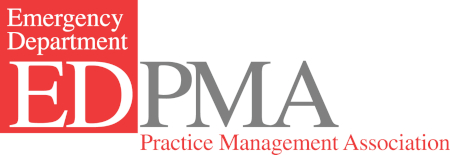
NSA I-Tact
If you are joining/unjoining a community, please email info@edpma.org so we can forward Outlook... View more
09.21.23 Summary For Standing Committee Meeting
-
09.21.23 Summary For Standing Committee Meeting
New Products and Resources:
Letter to the Tri-Departments: EDPMA Recommendations To Fix the NSA
EDPMA Comment Letter on the CY 2024 OPPS Proposed Rule
EDPMA Comment Letter on the CY 2024 Physician Fee Schedule Proposed RuleWork Group A – NSA Compliance
The group focused on various work-related issues, including data collection for a study, denials from insurers regarding out-of-network coverage, and examples of insurance violations related to IDRE balance issues. Patrick shares specific examples of claim denials from United Healthcare (UHC), and Cigna involving anesthesia services during vaginal deliveries or neonatal care.
Patrick Velliky discusses various instances of denied claims by United. William Freudenthal suggests looking into canceled contracts as potential smoking guns for a story. Patrick agrees and shares examples of proprietary remarks and broken leg cases that were wrongfully denied. They discuss the value of collecting data to show violations, focusing on emergency medicine but considering other specialties as well. Patrick plans to create an algorithm and provide examples to Congressional offices, aiming to make Tuesday uncomfortable for the plans. The group debates how much data is needed and decides on providing a small number of egregious examples while mentioning the existence of more violations. Patrick emphasizes the real patient harm caused by payer non-compliance and disregards promises made to the plans in order to hold them accountable during the upcoming hearing.
Patrick Velliky discusses the need to address problems and state reasons for concerns. He mentions that some offices will listen to committee staff, while others won’t. He also talks about potential allies in North Carolina who could support their cause with data. William Freudenthal emphasizes the importance of gathering more evidence on payer manipulation and illegal activities. Greg Hufstetler suggests creating a template to capture relevant data elements for presentations. They discuss the need for quantity and volume of examples to demonstrate a pattern of misconduct by payers. They mention the significance of addressing high-value items like neonatology cases. There is a discussion about bureaucracy within NSA hindering previous efforts, but they hope to overcome it this time with new leadership in place.
-
Patrick Velliky plans to share examples of EPO denials with committee members and provide an explanation of what is happening. These examples will demonstrate violations of the NSA and the impact on patients.
-
Greg Hufstetler will work with Patrick to develop an algorithm and template for data collection on EPO denials. This will help capture the necessary information to show violations of the NSA.
-
Patrick Velliky will reach out to Manny at the ASA and Rebecca at the ACR to discuss collaboration on collecting data and addressing EPO denials across multiple service lines.
-
Patrick Velliky will work on a layman’s explanation of the algorithm used for data collection so that others can apply it to their own databases.
Work Group B – IDR and IDRE Compliance
-
Shanna mentioned that they were thinking of following up with the IDRs to start getting them unstuck.
-
Shanna mentioned that they should continue with open negotiations and that they might need to stage their submissions in preparation for when the portal opened.
-
Shanna mentioned the need to reach out to Brenna to discuss the Lobby Day’s agenda and the plan.
-
Shanna agreed and suggested compiling a list of the issues related to the NSA and determining the messaging around them.
-
Shanna mentioned the importance of tying the issues back to the NSA and using the information within SRIC and QCDC to expand the discussion.
-
Create collaborative effort to compile the list and develop messaging to address the short-term implications and longer-term problems with in-network rates.
-
Address the unintended effects of the NSA and suggest raising awareness of the issues with organizations like the Kaiser Family Foundation.
-
Shanna proposed starting a Word document to compile the list of issues building a narrative around the short-term and long-term implications, emphasizing the impact on patients and the need for accountability and involve Greg in reviewing the list for existing data or the need for additional surveys.
-
Shanna agreed and suggested developing messaging around the importance of emphasizing how the issues are being manipulated by health plans and the need to gain traction with this messaging during lobby days.
Summary:
Ed mentions his conversation with Stephanie Caruso about I-Tact call updates and potential shutdowns. Matt Tamez questions the basis for shutting down IDR process for six months, while Shanna expresses concerns about its impact on IDREs’ decisions. They also mention ongoing negotiations, potential changes in CPT batching, and drafting a letter for immediate restoration. The group discusses timeframes for filing IDRs after relief is provided from mandatory deadlines.
Shanna suggests having a shorter time for submitting staged or set-aside items, while considering the potential need for resubmission. She also mentions that a longer time may be beneficial to avoid overwhelming IDREs. Ed shares a CMS chart and discusses federal IDR initiation timelines. Matt raises concerns about the impact on IDREs and suggests considering 30 business days instead of 45 calendar days. Stephanie mentions the variability in invoice payment times depending on arbitrators. They decide on 15 business days for submission and fee payment, considering IDRE influx. They discuss payer engagement during open negotiation periods and speculate if new rules will motivate them to participate more actively. Shanna believes payers will not change their behavior unless they have successful outcomes from IDR cases. They talk about engaging with the Department of Labor regarding timely payments by health plans after final decisions are made. The conversation shifts to discussing compliance with ERISA plans and sharing DOL contact information within the membership group.
The group talked about employers being penalized for not paying on time and the impact on health systems. They also mentioned a New York Times reporter they have been in contact with. Greg emphasized the importance of influential stakeholders such as brokers in redirecting patients to different insurance plans. The conversation touched on lobby days, upcoming hearings, and physician leaders attending these events. Matt raised concerns about policies by Blue Cross Blue Shield that mirror UHC’s auto down coding of VM levels without reference or denial information on EOBs. Jennifer Brown questioned the unintended effects of the No Surprises Act (NSA) and its impact on contract termination and costs of healthcare.
The discussion in this part of the transcript revolves around the correlation between certain actions and the NSA, as well as its impact on healthcare providers. There is a mention of United Healthcare (UHC) taking advantage of laws to benefit financially. The participants suggest compiling a list of related occurrences and developing messaging strategies for addressing them within different contexts, such as at the state level or within federal health policy discussions. They also discuss potential negative impacts on patient care due to contract cancellations, rate reductions, and denials by insurance payers. The closure of a portal that allowed access to additional payment options is seen as detrimental to healthcare providers’ ability to seek compensation. Furthermore, there are concerns about Judge Kernodle’s awareness of these issues and potential violations of the law by payers. Suggestions are made to gather data on termination letters received by providers and craft messages highlighting how health plans may be artificially inflating rates or driving down network rates.
Matt Tamez discusses the short term and long-term implications of current issues in network rates negotiation. Shanna expresses concern about patient protection being jeopardized due to health plans taking advantage of it. Matt mentions that payers are weaponizing the system, negatively impacting providers, and patients’ access to care. Jennifer Brown highlights increasing premiums, shifting costs, low payments for providers, and potential cuts in payments by 50%. They question who will bear this financial burden and discuss the unfunded mandate of EMTALA. The conversation ends with Shanna planning to create a Word document for messaging and reaching out to Brenna.
Work Group C – Legislative and Regulatory Fixes
Thanks to the work of Work Group C, specifically Tom, Jen, Ed, and Cathey – and the Hart Health team, EDPMA’s solutions-based letter to the Tri-Departments was sent on September 14. See the letter here.
edpma.org
Page not found - EDPMA | Emergency Department Practice Management Association
Page not found - EDPMA | Emergency Department Practice Management Association
-
Sorry, there were no replies found.
Log in to reply.

